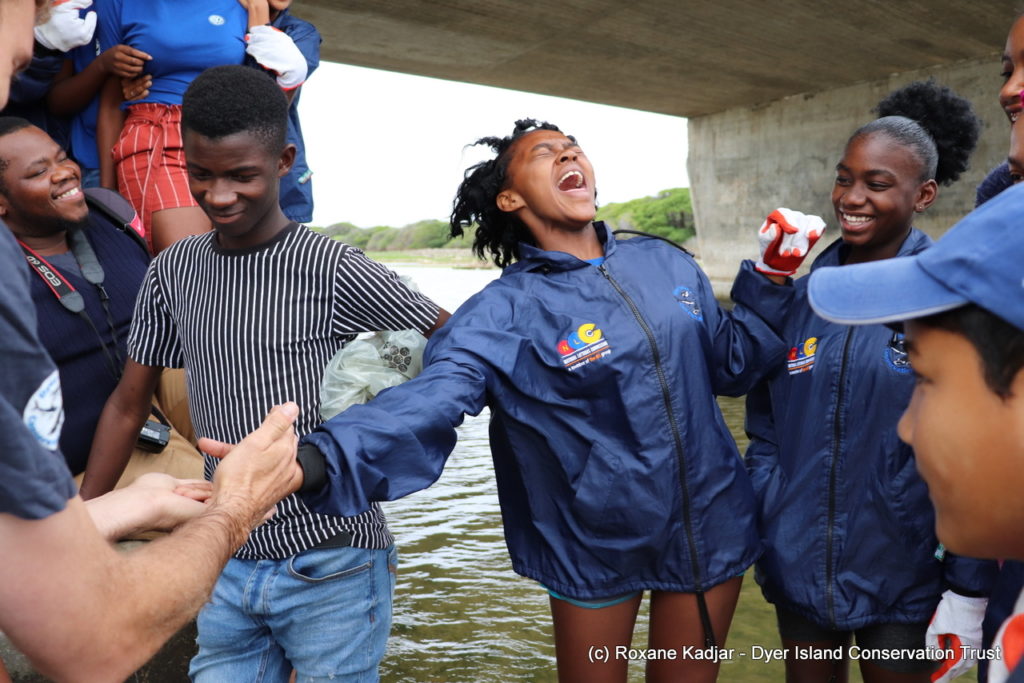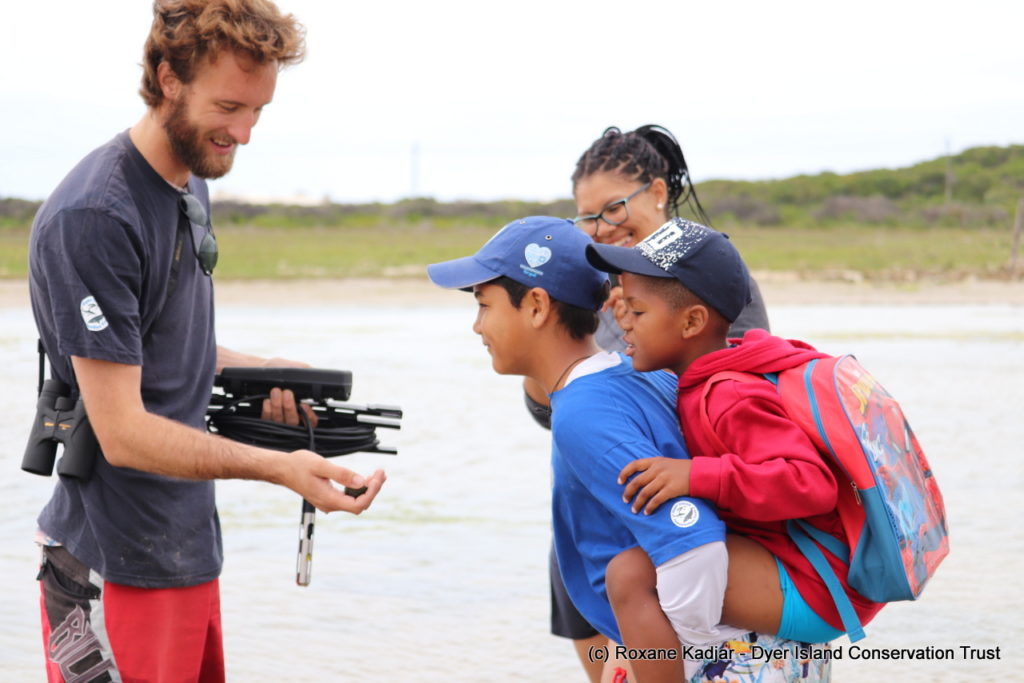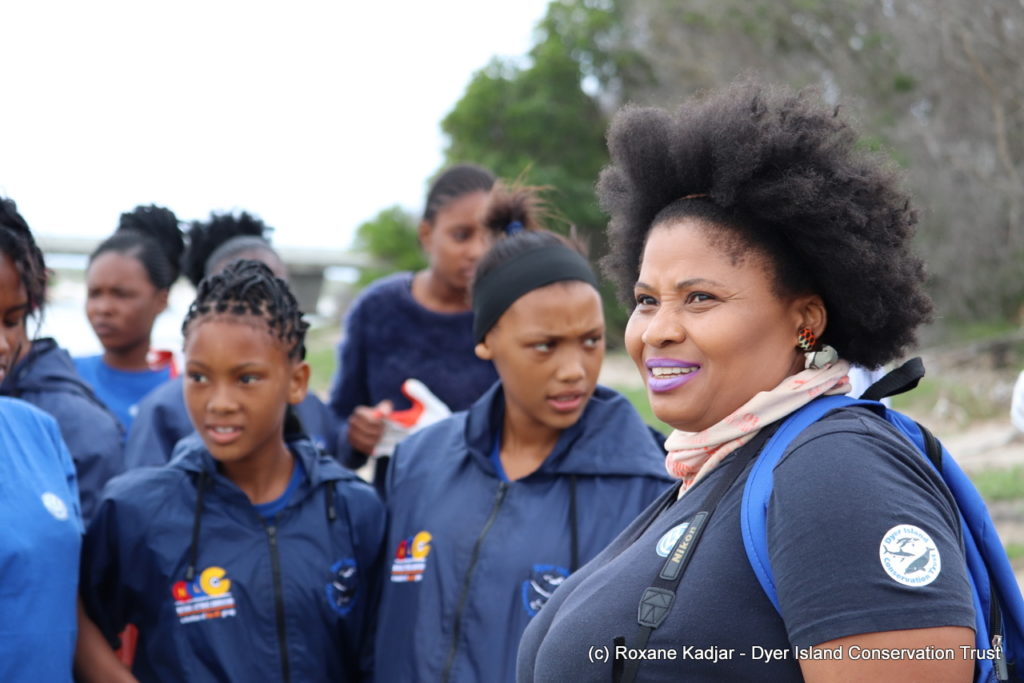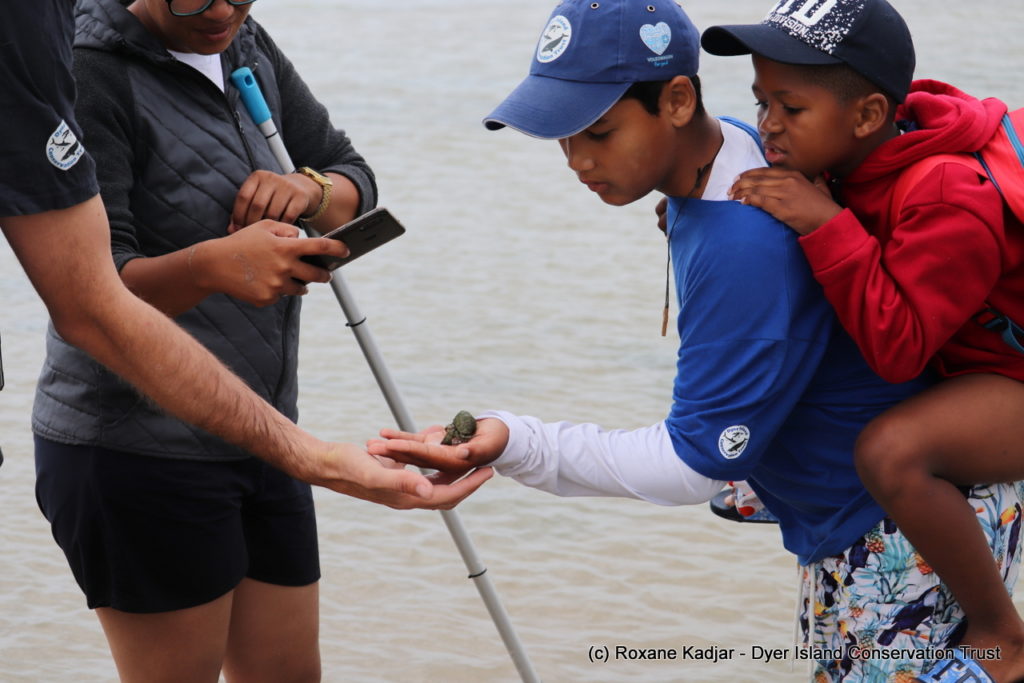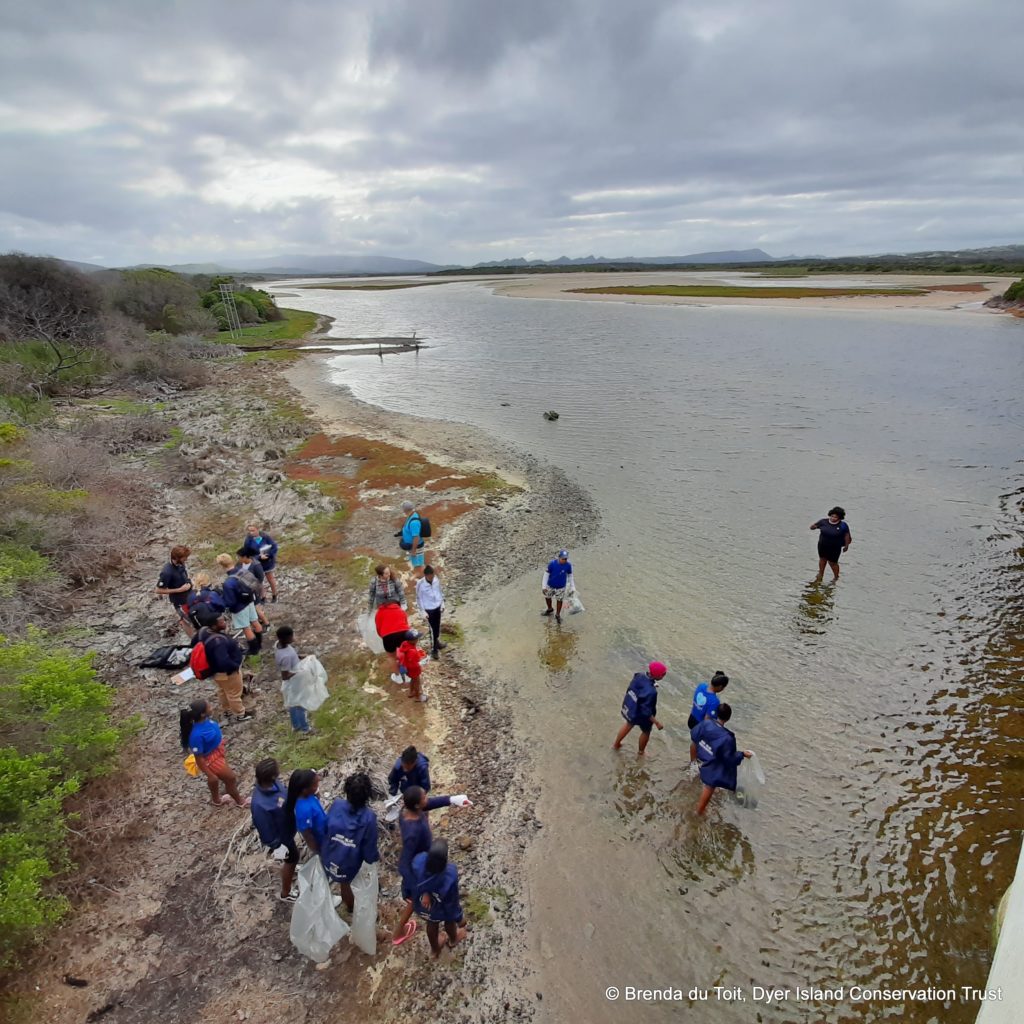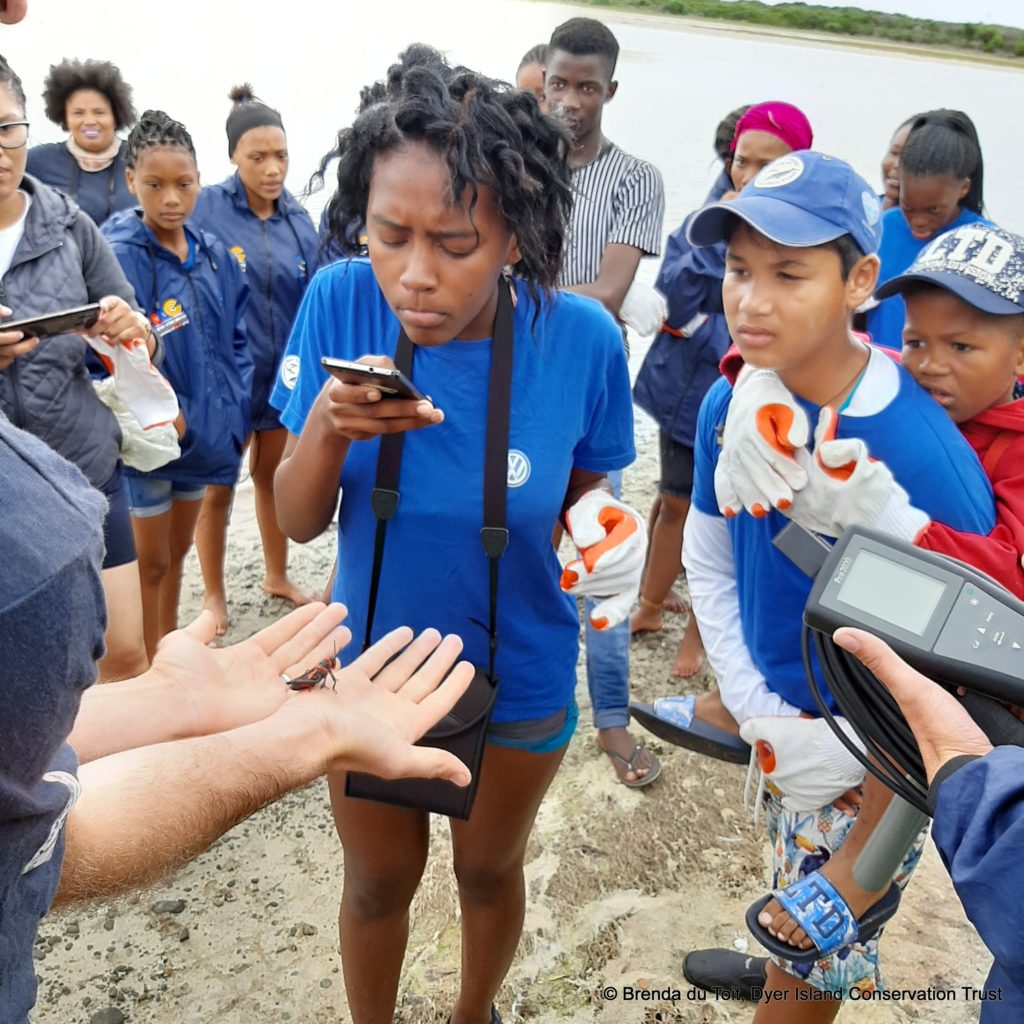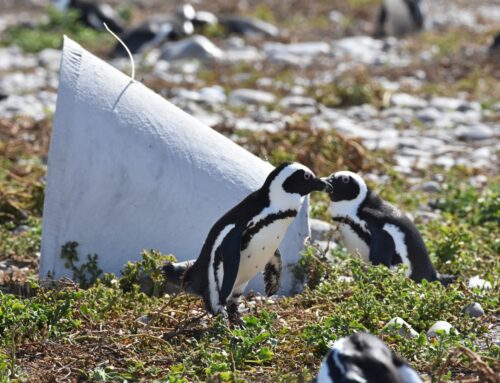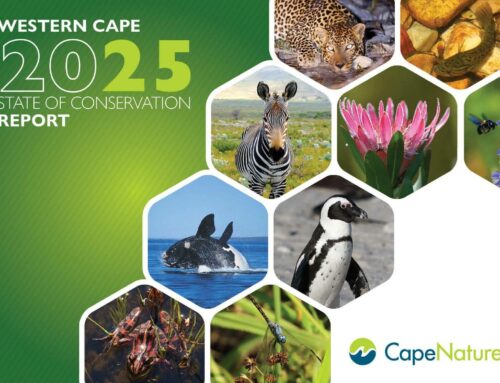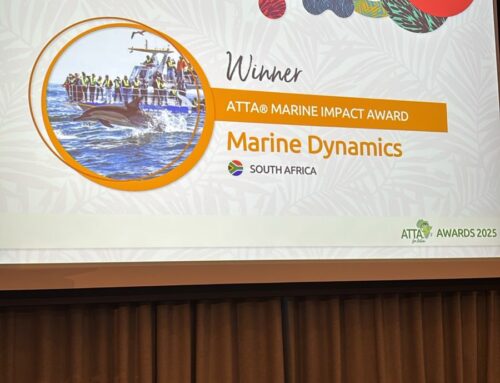To celebrate World Wetlands Day, the Dyer Island Conservation Trust’s Environmental Education Programme (DEEP) together with our conservation partner Marine Dynamics and the volunteers from Marine Dynamics Academy, visited the Uilenkraalsmond Estuary to do estuary monitoring and birding. The team was joined by Gansbaai Academia’s marine sciences teacher Lizelle Carolus and her learners, and DEEP Club students.
The monitoring was led by our marine biologist, Ralph Watson. The group measured the salinity, oxygen and temperature of the water in the estuary. Ralph Watson explained: “During this outing, we taught the learners about the importance of healthy wetlands and how the bird biodiversity is linked to the health of this ecosystem. We identified species, and showed them how monitoring helps highlight any concerns.” To the delight of the students, Ralph showed them some of the smaller species that live in or around the estuary.
The ecological viability of the estuary depends primarily on tidal flushing – salinity outside an organisms’ acceptable range can negatively affect growth, reproduction, and ultimately survival.
The theme for 2020 World Wetlands Day (WWD) is Wetlands and Biodiversity. World Wetlands Day is celebrated every year on 2 February. The day aims to raise global awareness about the vital role of wetlands for people and planet. Wetland ecosystems support a remarkable level of biodiversity in both animal and plant life. Latest estimates show a global decline of biodiversity, and wetlands are disappearing three times faster than forests. Wetlands serve many functions and have values that often go unnoticed, this includes water purification; shoreline stabilization; groundwater recharge and stream flow maintenance; flood protection; fish and wildlife habitat; as well as socio-economic benefits.
The Dyer Island Conservation Trust monitors the Uilenkraal system on a weekly basis with the data feeding into the overall management of the Estuary.
